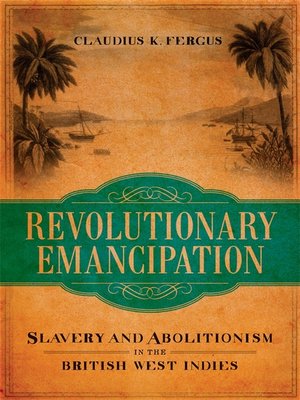Revolutionary Emancipation
ebook ∣ Slavery and Abolitionism in the British West Indies · Antislavery, Abolition, and the Atlantic World
By Claudius K. Fergus

Sign up to save your library
With an OverDrive account, you can save your favorite libraries for at-a-glance information about availability. Find out more about OverDrive accounts.
Find this title in Libby, the library reading app by OverDrive.



Search for a digital library with this title
Title found at these libraries:
| Library Name | Distance |
|---|---|
| Loading... |
Skillfully weaving an African worldview into the conventional historiography of British abolitionism, Claudius K. Fergus presents new insights into one of the most intriguing and momentous episodes of Atlantic history. In Revolutionary Emancipation, Fergus argues that the 1760 rebellion in Jamaica, Tacky's War — the largest and most destructive rebellion of enslaved peoples in the Americas prior to the Haitian Revolution — provided the rationale for abolition and reform of the colonial system.
Fergus shows that following Tacky's War, British colonies in the West Indies sought political preservation under state-regulated amelioration of slavery. He further contends that abolitionists' successes — from partial to general prohibition of the slave trade — hinged more on the economic benefits of creolizing slave labor and the costs of preserving the colonies from destructive emancipation rebellions than on a conviction of justice and humanity for Africans.
In the end, Fergus maintains, slaves' commitment to revolutionary emancipation kept colonial focus on reforming the slave system. His study carefully dissects new evidence and reinterprets previously held beliefs, offering historians the most compelling arguments for African agency in abolitionism.







